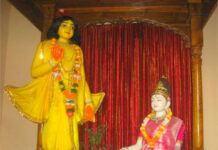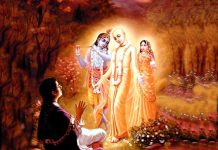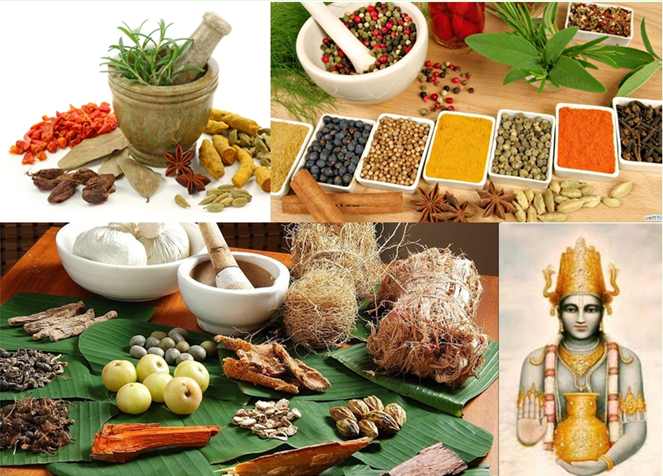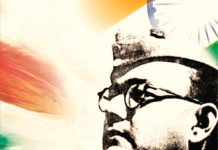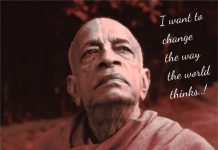Ayurvedic doctors once again prove how, in many ways, ancient medicines are superior to modern medicines. The latest in the news is, doctors in India have successfully substituted ayurvedic drugs for antibiotics during a prostatic surgery of an 83-year-old man. As a norm, antibiotics are used before, during and after the surgery to prevent potential infections, but, almost always, these drugs carry serious side effects and, quite often, cause increasing number of complications in the body. It was reported that during the surgery the doctors only used anaesthesia. No antibiotics.
“The patient was allergic to antibiotics and therefore, a panel of doctors decided to go in for ayurvedic drugs as an alternative,” Dr. Subhash Yadav, Urologist with Anand Hospital told Indian Science Journal over telephone from Meerut.
Dr. Yadav mentioned they were surprised by the outcome of applying integrated ayurvedic treatment, and Ojaswi Sharma, the patient, who faced no difficulties during the surgery is on the path of recovery after removing 240 grams of prostate last month.
“He said a team of expert Ayurvedic practitioners across the country were contacted, who suggested special medicines from extracts of Indian Tinospora (Giloy in Hindi), Moringa Oleifera (Shigru in Hindi, Muringa in Malayalam), Gooseberry (Hindi name-Amla), Turmeric and Indian bdellium-tree (Gulgul). Shigru is used for mild infections and is a natural pain reliever. Amla increases immunity while Giloy has known detoxifying characteristics. “This is a very interesting development,” said Dr. Ram Manohar, Research Director at Amrita School of Ayureda in Kerala.
“It is an eye opener in this period when resistance is being developed for antibiotics. This case points to the need for more studies to explore the potential contributions of Ayurveda in many areas of challenge.”
Dr. Ram Manohar said, this development comes close to a study at New Delhi’s All India Institute of Medical Sciences, which showed supportive Ayurvedic treatment improved outcomes in chemotherapy for cancer. All these show the great potential for integrative approach to healthcare. “India can lead the world if there is better cooperation between Ayurveda and Allopathic professionals.”” Source (http://timesofindia.indiatimes.com/life-style/health-fitness/health-news/-Ayurvedic-drugs-during-surgery…)
However, this is not the first time that ayurvedic medicines are used to substitute modern drugs. Rather, it is the modern drugs that have gradually substituted ayurvedic medicines. In other words, doctors have been curing diseases and performing surgeries since centuries when there was no existence of allopathic drugs. It is only for last few decades or a century at the most that the usage of modern drugs have become prominent, almost to the extent of being inevitable. Considering this, it is the allopathic medicines that are “alternative medicines”, but the medical industry deliberately calls ayurvedic medicines as alternative medicines. This is an untold irony that needs to be addressed. Benefits of turmeric, ajwain, tulasi, neem, etc. are no more unknown to the modern world.
The propaganda that people in the past suffered without medicines is a myth. The reality is, modern drug industry has irreversibly damaged human health and is now out to destroy animal health as well. Let us not forget that animals, both domestic and wild, have been living healthy lives since thousand of years. It is only now that special hospital wards are being set up for treating pets. It’s all about business. This is not about being thankless but to point out that, going by records, modern medicines have done more harm than help.
After all, despite its many benefits, allopathy is a science based on experiments. Historically, the side effects of many modern medicines have become known only after the damage is permanently done, but unfortunately the medicine industry doesn’t want people to know the reality for the fear of losing reputation that effectively converts into financial loss. Besides, allopathy has limited resources although it is hardly admitted by the industry, again, for the same reasons. This, quite often, pushes the patient into a life of increasing complications.
On the other hand, Ayurveda is a descending, and so infallible knowledge, coming down to mankind from none other than Lord Dhanvantari, an incarnation of Lord Vishnu Himself. This is why the diseases that appear to be extremely complicated or incurable to modern science can be efficiently dealt with by ayurvedic medicines.
Not that there are no quacks going around posing as ayurvedic doctors and no counterfeit medicines sold as ayurvedic products, but such scenarios are applicable to all sectors these days and one needs to be cautious about it. Under all circumstances, if the ancient science of ayurveda can be religiously promoted by worldwide awareness camps and systematic education, there is no doubt that the world can again be healthier soon.


